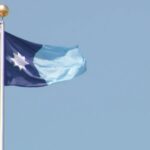Rome (Agenzia Fides) – African governments spend a total of up to $1 billion a year on surveillance technologies, according to the report “Mapping the supply of surveillance technologies to Africa: case studies from Nigeria, Ghana, Morocco, Malawi and Zambia” by the Institute of Devolopment Studies, which is affiliated with the University of Sussex in Brighton.
Officially, these technologies are used to combat crime and terrorism, but they can lead to misuse and violation of citizens’ basic human rights. The main suppliers of Surveillance technologies are supplied by companies predominantly from the USA, China, Europe, and Israel. “Supplier companies regularly claim that they only supply governments, or that any illegal surveillance constitutes a breach of their terms of service”, the report said. “European companies are supposed to conduct human rights assessments prior to supply. However, none of these voluntary self-policing measures have prevented the rapid expansion of surveillance that violates fundamental human rights”.
Five types of surveillance technologies sold to African states were examined: Internet eavesdropping, cell phone eavesdropping, social media monitoring, Safe City/Smart City and biometric identification. The report documents the digitalization and algorithmic automation of government surveillance across Africa. Since the turn of the millennium, “a digitalization of surveillance has taken place, which has enabled automation of surveillance to a previously unimaginable extent”, the document states. Today, state surveillance authorities can monitor the communications of all citizens on the one hand on a mass scale and, on the other hand, deeply into the lives of individuals (e.g. from opposition politicians to human rights defenders, etc.) by bringing together in real time data from mobile calls, SMS, Internet messages, GPS locations and financial transactions. One of the largest buyers of surveillance systems is Nigeria. Buyers include both individual states and the federal government. Despite the use of sophisticated surveillance technology, Nigeria faces serious security problems: terrorism, banditry and kidnappings.
But there are also concerns about the respect of human rights by government authorities. “It is important that those who govern us know that freedom of speech is a human right and that freedom of expression is a God-given right that no one can take away,” emphasized Bishop Matthew Hassan Kukah of Sokoto in an interview with Fides (see Fides, 12/8/2021), who expressed concern about human rights violations in Nigeria. “There is a need to raise awareness in African countries of both privacy rights and abuses of surveillance. Research capacity needs to be built in each country to effectively monitor abuse of surveillance powers, its effects on citizens’ rights, and viable pathways to overcome injustice”, the report concludes. (L.M.) (Agenzia Fides, 17/10/2023)
Source : Agenzia Fides
















